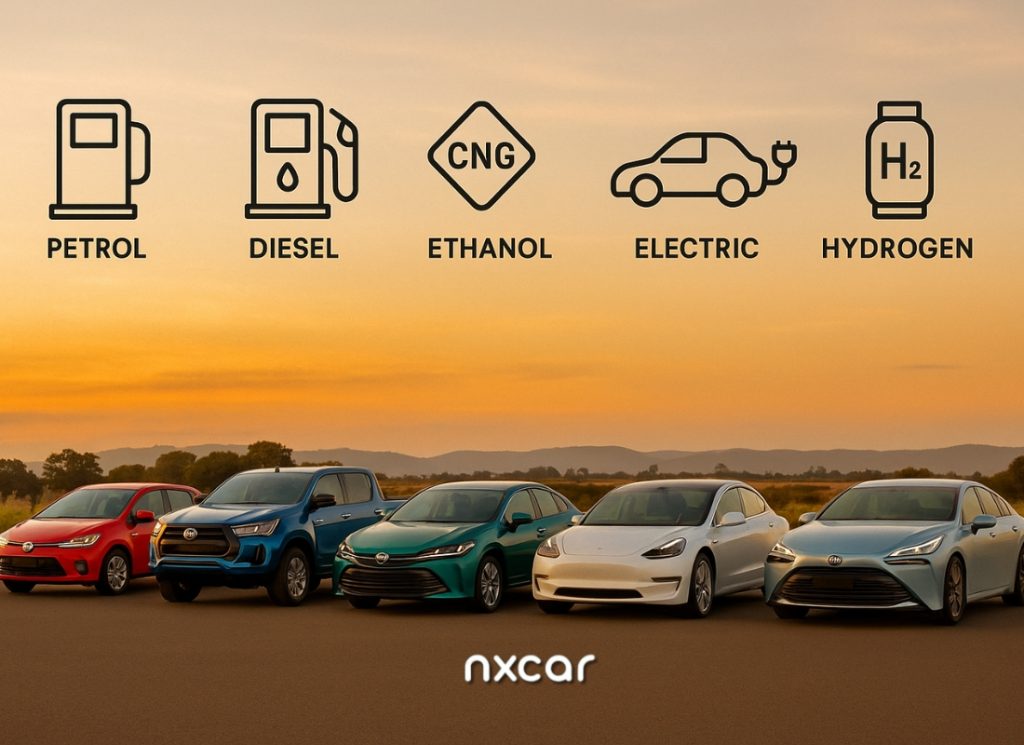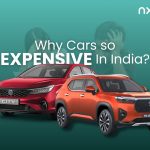In today’s fast-evolving mobility landscape, choosing the right fuel type isn’t just a matter of efficiency—it’s a pivotal life decision. With rising fuel prices, climate anxiety, and shifting regulatory frameworks, motorists and businesses alike are caught in a swirl of uncertainty. Petrol vs Diesel Vs CNG vs Hybrid vs Ethanol vs Electric vs Hydrogen—the list is not just exhaustive, it’s exhausting. Which one is best for your wallet? For the planet? For the future of transport?
The dilemma deepens when each option presents both promise and peril. Petrol offers convenience but comes with a carbon cost. Diesel, once hailed for mileage, is now shadowed by emissions scrutiny. CNG touts lower emissions, but infrastructure gaps remain glaring. Hybrid vehicles straddle tradition and innovation, yet often demand premium pricing. Ethanol, the biofuel darling, faces scalability challenges. Electric cars are revolutionizing the roads but raise concerns around battery disposal and grid sustainability. And Hydrogen—the fuel of the future—still feels like it’s trapped in tomorrow.
Caught between progress and practicality, consumers are left overwhelmed. This isn’t just a question of performance specs or tax benefits. It’s about redefining mobility in a world that demands both sustainability and accessibility. In this comparative guide, the haze will clear. Every strength, every shortfall—laid bare. Whether you’re a first-time buyer or an eco-conscious commuter, understanding Petrol vs Diesel Vs CNG vs Hybrid vs Ethanol vs Electric vs Hydrogen is no longer optional. It’s essential.
Petrol
In the evolving conversation around sustainable mobility, petrol remains deeply entrenched in India’s transport culture. From scooters zipping through narrow lanes to sedans cruising highways, this fossil fuel continues to dominate despite mounting environmental and economic pressures.
The Relevance of Petrol in India
India’s automotive market has long been designed around petrol engines, primarily due to their lower upfront cost, smoother driving experience, and availability across urban and rural landscapes. With millions still relying on this fuel, its role cannot be dismissed overnight.
Pros of Using Petrol
- Widespread Availability: Accessible at virtually every fuel station across the country.
- Lower Noise and Vibration: Compared to diesel, petrol engines offer a quieter and more refined drive.
- Cheaper Maintenance: Petrol engines typically involve lower service costs and less engine wear.
- Better for Short Commutes: Ideal for city driving and shorter distances.
Cons of Using Petrol
- Higher Running Costs: Petrol prices in India remain volatile and often higher per kilometer than diesel or CNG.
- Environmental Concerns: Higher carbon emissions compared to electric, hydrogen, or ethanol alternatives.
- Depleting Reserves: As a non-renewable source, long-term reliance is unsustainable.
Petrol in the Broader Fuel Debate
When considering Petrol vs Diesel Vs CNG vs Hybrid vs Ethanol vs Electric vs Hydrogen, petrol is no longer the uncontested default. While still a practical choice for many, especially in semi-urban zones, its dominance is being challenged by cleaner, more future-ready options. Its survival may hinge not on performance, but on how quickly India embraces transition.
Diesel
In the expansive debate of Petrol vs Diesel Vs CNG vs Hybrid vs Ethanol vs Electric vs Hydrogen, diesel has long held its ground as the preferred choice for torque-hungry machines and high-mileage travelers. From trucks that power India’s logistics sector to SUVs navigating rugged terrains, diesel engines have been synonymous with resilience and endurance.
Diesel’s Position in India’s Transport Ecosystem
With superior fuel efficiency and robust performance, diesel vehicles gained momentum, especially for long-haul and commercial applications. However, growing environmental concerns and policy shifts are beginning to blur its advantages.
Pros of Using Diesel
- Fuel Efficiency: Diesel engines deliver significantly higher mileage than petrol, making them ideal for intercity and highway travel.
- Torque-Rich Performance: Especially beneficial for heavy-duty vehicles, hill drives, and load-bearing capacities.
- Durability: Diesel engines are built to endure prolonged usage with lower engine strain.
Cons of Using Diesel
- Pollution and Emissions: Higher particulate matter and nitrogen oxide emissions have made diesel a target in India’s pollution-control policies.
- Higher Initial Cost: Diesel vehicles typically cost more upfront due to complex engine systems.
- Regulatory Pressure: Delhi NCR and other metros have begun phasing out older diesel vehicles, affecting resale and long-term viability.
- Noise and Vibration: Diesel engines tend to be louder and less refined compared to petrol counterparts.
The Broader Energy Matrix
In the narrative of Petrol vs Diesel Vs CNG vs Hybrid vs Ethanol vs Electric vs Hydrogen, diesel is at a crossroads. Once the default for power and economy, it now stands on shifting ground, challenged by cleaner and more sustainable innovations.
Also Read – 8 Major Problems with CNG Vehicles: What Every Buyer Should Know
CNG
In the energy matrix of Petrol vs Diesel Vs CNG vs Hybrid vs Ethanol vs Electric vs Hydrogen, CNG (Compressed Natural Gas) emerges as a pragmatic bridge between traditional fuels and cleaner alternatives. Especially in Indian metros like Delhi and Mumbai, CNG has become a symbol of low-emission mobility without the steep costs of electrification.
The Role of CNG in India’s Fuel Landscape
Favoured by taxis, autorickshaws, and increasingly by private car owners, CNG offers a viable alternative for cost-conscious commuters. Its adoption has surged in cities plagued by air quality crises, largely driven by government incentives and expanding refuelling infrastructure.
Pros of Using CNG
- Lower Emissions: CNG emits significantly less carbon monoxide, nitrogen oxides, and particulate matter compared to petrol or diesel.
- Affordable Running Costs: With CNG prices relatively stable, operational expenses are among the lowest in the current market.
- Engine Longevity: Cleaner combustion leads to reduced engine wear and maintenance costs.
- Government Support: Subsidies, tax incentives, and green vehicle certifications aid CNG adoption.
Cons of Using CNG
- Limited Refuelling Network: Despite growth, infrastructure outside urban centres remains sparse.
- Reduced Boot Space: CNG tanks occupy significant luggage space, affecting practicality.
- Slight Power Drop: Vehicles may exhibit lower acceleration compared to their petrol counterparts.
The Broader Perspective
In the ongoing comparison of Petrol vs Diesel Vs CNG vs Hybrid vs Ethanol vs Electric vs Hydrogen, CNG stands as a compelling, eco-friendlier middle path. While it may not be the ultimate solution, it offers an accessible, cleaner alternative for today’s congested urban roads.
Also Read – Will Hybrid Cars Outsell Electric Vehicles in the Coming Years?
Hybrid
In the complex equation of Petrol vs Diesel Vs CNG vs Hybrid vs Ethanol vs Electric vs Hydrogen, hybrid vehicles promise balance—merging the familiarity of internal combustion with the quiet efficiency of electric propulsion. Globally, hybrids have been lauded for offering the best of both worlds. In India, however, their potential is being quietly stifled by a regulatory paradox.
What Makes Hybrid Vehicles Stand Out?
Hybrids operate using a dual system—typically combining a petrol engine with an electric motor. The motor assists in low-speed driving and recovers energy through regenerative braking, significantly improving fuel efficiency and lowering emissions without the range anxiety of fully electric cars.
Pros of Using Hybrid Vehicles
- Enhanced Fuel Economy: Especially in urban stop-go traffic where electric assistance reduces fuel use.
- Reduced Emissions: Compared to conventional petrol and diesel engines, hybrids offer cleaner combustion.
- No Charging Dependency: Unlike electric vehicles, hybrids do not require plug-in infrastructure.
- Smoother Drive Experience: Instant torque from the electric motor complements engine performance.
Cons of Using Hybrid Vehicles
- High Initial Cost: Advanced technology increases sticker price.
- No Tax Benefits: Unlike electric vehicles, hybrids in India face high GST (43%)—a policy that discourages adoption.
- Limited Model Availability: Fewer hybrid options on the Indian market compared to conventional or electric vehicles.
The Bigger Picture
In the ongoing debate of Petrol vs Diesel Vs CNG vs Hybrid vs Ethanol vs Electric vs Hydrogen, hybrid cars offer a credible transition technology. Yet, without supportive tax structures and greater model variety, their role in India’s green mobility dream may remain underutilized—despite their potential to make a real-world impact today.
Also Read – Hybrid vs Electric Car Comparison: Which is Best for You?
Ethanol
In the unfolding energy narrative of Petrol vs Diesel Vs CNG vs Hybrid vs Ethanol vs Electric vs Hydrogen, ethanol stands out as a renewable, homegrown alternative with vast potential—yet limited presence on Indian roads. Derived from crops like sugarcane, maize, and rice husk, ethanol offers a greener pathway to combustion, especially in a country rich in agricultural resources.
Ethanol’s Global Footprint
In countries like Brazil and the United States, ethanol-blended fuels power millions of vehicles daily. Flexible-fuel vehicles (FFVs) run seamlessly on high ethanol blends like E85 (85% ethanol), helping cut down oil imports and emissions simultaneously. The model has proven its scalability and sustainability abroad.
India’s Ethanol Ambitions vs Ground Reality
India has set aggressive targets for blending ethanol with petrol—aiming for E20 fuel by 2025. Yet, the infrastructure and vehicle compatibility remain limited. Despite policy pushes, dedicated ethanol-powered cars are virtually absent from the Indian market.
Pros of Ethanol (in Indian Context)
- Renewable & Rural-Friendly: Boosts income for farmers and reduces crude oil dependence.
- Lower Emissions: Burns cleaner than petrol or diesel, cutting CO₂ and particulate matter.
- Economically Viable: Ethanol-blended fuels can potentially reduce fuel costs.
Cons of Ethanol
- Lack of Vehicle Availability: No mainstream ethanol-compatible vehicles in Indian showrooms.
- Mileage Drop: Ethanol has lower energy content, leading to reduced fuel efficiency.
- Food vs Fuel Debate: Crop diversion for fuel may strain food security if not managed prudently.
Looking Ahead
In the broader comparison of Petrol vs Diesel Vs CNG vs Hybrid vs Ethanol vs Electric vs Hydrogen, ethanol offers a sustainable, scalable fuel source waiting for a vehicle revolution in India. Until FFVs hit domestic roads, its promise remains largely theoretical.
Also Read – Hybrid vs CNG Car: Which Used Option is Right for You?
Electric Vehicles
Among the contenders in the energy transition—Petrol vs Diesel Vs CNG vs Hybrid vs Ethanol vs Electric vs Hydrogen—electric vehicles (EVs) carry the greatest promise for zero-emission mobility. Quiet, sleek, and technologically forward, EVs are reshaping how the world imagines transport. In India, however, this revolution is still idling in the slow lane.
The Promise of Electric Mobility
EVs eliminate tailpipe emissions entirely, offering a clean solution to India’s urban air quality crisis. Backed by government schemes like FAME II and state-level subsidies, the ecosystem is gradually taking shape—but adoption remains uneven.
Pros of Electric Vehicles
- Zero Tailpipe Emissions: No CO₂, no PM2.5—an antidote to polluted cities.
- Lower Running Costs: Electricity is significantly cheaper per kilometer than petrol or diesel.
- Fewer Moving Parts: Reduced maintenance, no oil changes, and fewer breakdowns.
- Driving Experience: Instant torque, smooth acceleration, and silent operation.
Cons of Electric Vehicles
- High Upfront Costs: Despite subsidies, EVs remain costlier than petrol or CNG alternatives for most Indian buyers.
- Charging Infrastructure: Sparse and inconsistent, particularly outside Tier-1 cities.
- Battery Concerns: Degradation, range anxiety, and recycling challenges persist.
- Longer Refuelling Time: Fast chargers are still not widely available or affordable.
A Future on Hold?
In the wider debate of Petrol vs Diesel Vs CNG vs Hybrid vs Ethanol vs Electric vs Hydrogen, electric vehicles are the ideal—but not yet the norm. Until pricing narrows and infrastructure expands, the EV story in India will remain a promise in waiting, not a mainstream reality.
Hydrogen
In the evolving dialogue around sustainable transport—Petrol vs Diesel Vs CNG vs Hybrid vs Ethanol vs Electric vs Hydrogen—hydrogen is often painted as the silver bullet. Emitting only water vapor and offering long-range capabilities, hydrogen fuel cell vehicles once seemed destined to lead the clean energy race. Yet in India, the reality has unfolded quite differently.
The Hydrogen Dream
Hydrogen vehicles use fuel cells to generate electricity, offering the zero-emission benefits of electric mobility without the downtime of battery charging. Global automakers experimented with early models, and India, too, saw trial programs. However, mass adoption has remained elusive.
Pros of Hydrogen Fuel
- Zero Emissions: Tailpipe output is pure water vapor, making it among the cleanest options.
- Fast Refueling: Comparable to petrol or diesel, unlike lengthy EV charging.
- High Energy Density: Better suited for heavy vehicles, trucks, and long-haul applications.
Cons of Hydrogen (in Indian Context)
- Non-Existent Infrastructure: Hydrogen refueling stations are virtually absent.
- Production Challenges: Most hydrogen today is “grey” or “blue,” not “green”—undermining its environmental benefit.
- High Cost: Fuel cells, tanks, and infrastructure come with steep price tags.
- Lack of Industry Momentum: Automakers have shifted focus toward electric, leaving hydrogen largely abandoned.
The Ground Reality
In the ongoing comparison of Petrol vs Diesel Vs CNG vs Hybrid vs Ethanol vs Electric vs Hydrogen, hydrogen remains a distant dream. Technically sound but logistically stranded, it risks becoming an elegant solution without a viable roadmap—at least for India’s near-term mobility needs.
Understanding the Different Fuel Types of Cars in India
| Feature | Petrol | Diesel | CNG | Electric (EV) | Hybrid | Ethanol | Hydrogen |
|---|---|---|---|---|---|---|---|
| Fuel Price | High | Lower than petrol | Very Low | Lowest (per km) | High (due to petrol dependency) | Low (if E85 is adopted) | Currently high |
| Car Price | Most affordable | Slightly higher than petrol | Between petrol and diesel | Most expensive overall | More than diesel cars | Not commercially available | Not available for retail |
| Performance | Smooth, linear acceleration | Torque-heavy, strong mid-range | Modest power, city-suitable | Instant torque, silent | Balanced between electric and ICE | Similar to petrol | High torque, silent, futuristic |
| Boot Space | No impact | No impact | Usually compromised (due to tank) | No impact | Can be compromised | No impact | No data yet |
| Mileage / Range | Lowest of the lot | Higher than petrol | Comparable to diesel | Limited by charging infra | Slightly less than diesel | Slightly lower than petrol | Long range possible |
| Running Cost (per km) | High | Moderate | Very low | Extremely low | Moderate | Low | Unknown |
| Maintenance Cost | Low | Higher due to complex systems | Slightly more than petrol | Lowest (fewer moving parts) | Similar to petrol | Expected to be low | Expected to be high initially |
| Environmental Impact | Polluting | Most polluting | Less harmful | Zero tailpipe emissions | Less polluting than petrol/diesel | Cleaner-burning (if blended well) | Zero tailpipe emissions |
| Fuel/Charging Availability | Widely available | Widely available | Expanding but limited | Growing steadily | Widely available | Limited infrastructure | No public infra |
| Engine / System Longevity | Reliable | Very durable | Comparable to petrol | Very long lifespan (battery-specific) | Similar to petrol | Comparable to petrol | Yet to be established |
| Government Incentives | None | None | Limited subsidies (state-specific) | Strong incentives under FAME II | No direct tax benefits | Policy-level push for blending | Pilot phase only |
| Resale Value | Stable | Declining (NCR bans on 10-yr-old diesels) | Lower resale due to perception | Still uncertain, but improving | Low resale due to niche status | Not applicable | Not applicable |
| Long-Distance Suitability | Very suitable | Excellent for highways | Limited by filling station reach | Depends on fast-charging infra | Good balance for mixed use | Viable if FFVs are launched | Ideal for commercial logistics |
| Refueling Time | 2–3 minutes | 2–3 minutes | 5–10 minutes | 30 min – several hours | 2–3 minutes | Same as petrol | 5 minutes (if infra exists) |
| Market Availability | Very high | Moderate (dropping due to policy) | Moderate (mostly in small cars) | Growing but limited in options | Limited to premium segment | Yet to launch commercially | Only in research/trials |
Which Fuel Option is the Future?
The future of mobility will not be shaped by a single winner in the race of Petrol vs Diesel Vs CNG vs Hybrid vs Ethanol vs Electric vs Hydrogen. It will be a calibrated blend, guided by geography, infrastructure, and policy vision. In urban India, electric vehicles are gaining momentum due to zero tailpipe emissions and government incentives. For long-haul and commercial applications, CNG and potentially hydrogen could carve a niche—provided infrastructure keeps pace. Hybrid may serve as an interim bridge, though taxation policies need urgent reform. Ethanol, though promising, still awaits widespread vehicular adoption. Meanwhile, diesel and petrol are losing favor under regulatory and environmental scrutiny. The transition won’t be uniform, but the trajectory is clear—cleaner, greener fuels are not just idealistic aspirations, they’re economic and ecological imperatives. The road ahead may be diverse, but combustion is no longer king. The future is unmistakably electric—and beyond.
Most Common Issues by Fuel Type
Petrol
-
High Running Costs: Frequent refueling due to lower mileage.
-
Price Volatility: Highly sensitive to global crude prices.
-
Environmental Impact: Emits significant greenhouse gases.
Diesel
-
High Maintenance Costs: Engine wear, turbocharger issues.
-
Pollution Regulations: Bans on older vehicles in many cities (e.g., 10-year limit in Delhi NCR).
-
Declining Resale Value: Reduced buyer interest due to policy pushback.
CNG
-
Limited Infrastructure: Inadequate number of filling stations outside major cities.
-
Power Drop: Reduced engine performance compared to petrol.
-
Boot Space Loss: Cylinder occupies trunk space.
Hybrid
-
High Purchase Price: No GST benefits unlike EVs.
-
Complex Mechanics: Higher repair costs in case of failure.
-
Limited Options: Few models available in the Indian market.
Ethanol
-
Vehicle Compatibility: Lack of flex-fuel vehicles.
-
Lower Efficiency: Reduced mileage compared to petrol.
-
Availability Issues: Blending still in early stages across the country.
Electric
-
High Upfront Cost: Even after subsidies, EVs remain expensive.
-
Charging Anxiety: Sparse fast-charging infrastructure.
-
Battery Degradation: Performance drops over time.
Hydrogen
-
No Public Infrastructure: Virtually zero refueling stations.
-
High Production Cost: Green hydrogen is still not commercially viable.
-
Technology Immaturity: Limited to pilot projects and research.
Conclusion
The future of transportation in India will not be decided by convenience alone but by conscience, climate, and collective readiness. In the evolving equation of Petrol vs Diesel Vs CNG vs Hybrid vs Ethanol vs Electric vs Hydrogen, each fuel has its moment—and its limitations. The transition will be gradual, uneven, and shaped by policy, innovation, and infrastructure. While electric and hybrid options are gaining momentum, legacy fuels like petrol and diesel are slowly yielding ground. The journey ahead demands balance—between ambition and affordability, ecology and economy. What fuels tomorrow, starts with informed choices today.




